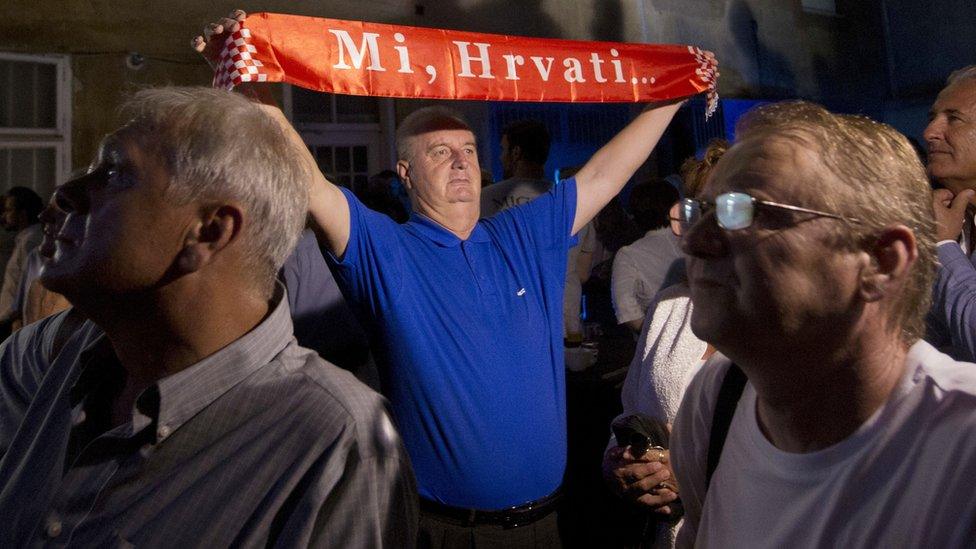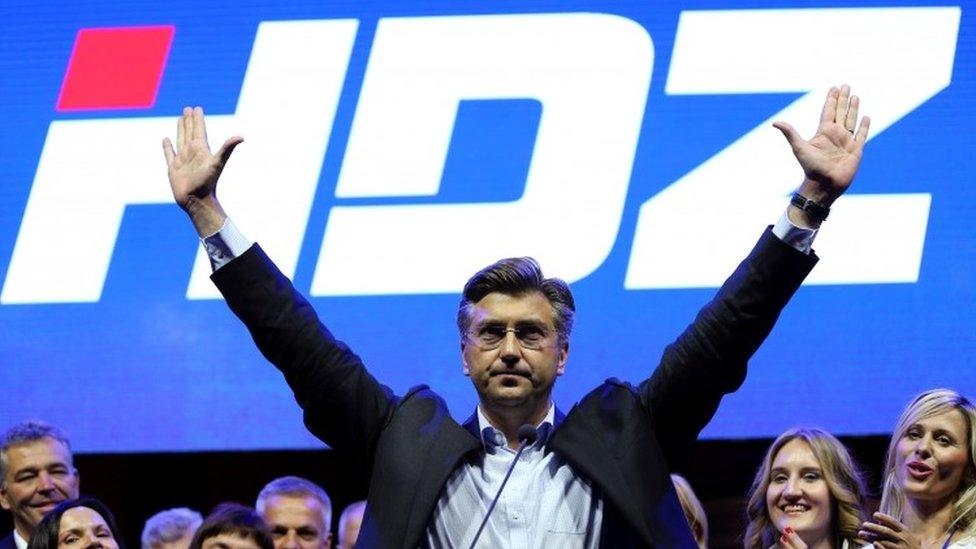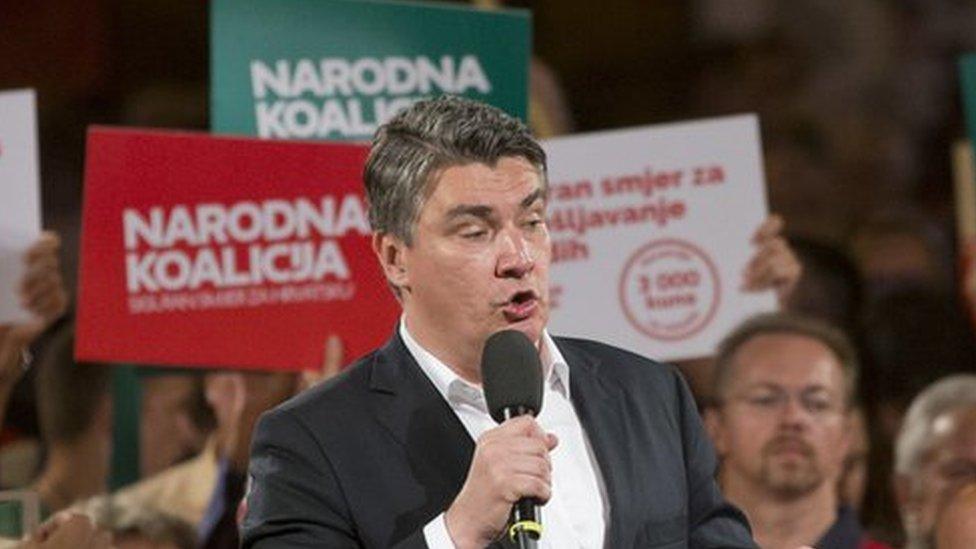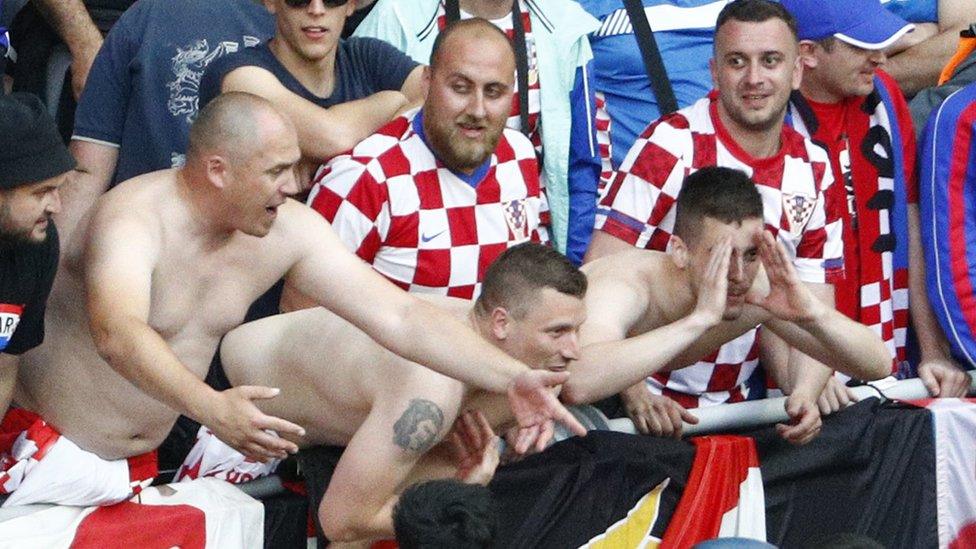Croatia's conservative HDZ win tight election
- Published

HDZ ran on its own on Sunday, without the support of more extreme nationalist parties
Croatia's conservative HDZ party has won Sunday's parliamentary election but is expected to seek the support of a centrist party to form a coalition.
HDZ won 61 of 151 seats while the Social Democrat-led four-party alliance had 54 seats.
Snap elections were called after the HDZ government collapsed in June over a conflict of interest scandal.
Croatia joined the EU in 2013 but political stalemate has prevented much-needed reforms from being carried out.
In its eight months in power, the HDZ-led coalition had been characterised by a shift to the right and growing antipathy towards the independent media and minorities, especially ethnic Serbs.
The BBC 's Guy Delauney in Zagreb described how nationalism and neighbour-bashing had become a feature of Croatian politics in recent months.
However, the party's new and more moderate leader, Andrej Plenkovic, has promised a "Europe-oriented" government and the HDZ ran on its own in Sunday's poll, without any of the more extreme nationalist parties.
It is thought Mr Plenkovic will look initially to form a coalition with the centre-right Most (Bridge) party, which won 13 seats.

HDZ's new leader Andrej Plenkovic is a former career diplomat who has a reputation as a moderate with little time for nationalist causes
The centre-left SDP conceded victory and drew attention to the low 53% turnout.
Its leader Zoran Milanovic criticised the previous "unstable and destructive" HDZ-led coalition and said what Croatia needed was a stable government.
Some 3.8 million people were eligible to vote in the country's second election in less than a year.
Read more on Croatia
Croatia remains one of the EU's mostly poorly performing economies despite recent positive developments linked to its EU membership.
Almost a year of political deadlock impeded urgently needed economic reforms, with the economy relying heavily on tourism along the Adriatic coast.
- Published9 September 2016

- Published27 August 2016
